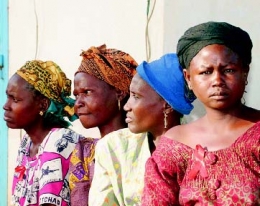The spread of HIV/Aids is an enormous problem in Africa. According to the UN Aids Report 2008, there were approximately 5.7 million people living with HIV in South Africa in 2007, and almost 1,000 people died from HIV-related illnesses.
But these drastic numbers don’t seem to be enough for some. Many people in South Africa are still being denied access to anti-retroviral drugs to combat the virus. In particular, the Aids Law Project, an NGO based in Johannesburg, estimates that 50,000 children in South Africa were in need of antiretroviral drugs at the beginning of 2006, but just 10,000 were receiving them.
This depressing situation is compounded by the fact that the Aids problem was not really acknowledged by South African politicians in the past. Former President Thabo Mbeki is notorious for his scepticism over the connection between HIV and Aids, and the former Health Minister Manto Tshabalala-Msimang provoked worldwide ridicule for advocating the use of beetroot and garlic over ‘western’ medicines to treat the epidemic.
But how is the problem of HIV/Aids being dealt with in South Africa today? One example is being set by Oxfam Ireland, which participates in the Joint Oxfam HIV/Aids Programme (JOHAP) in South Africa.
The programme aims to strengthen society’s response to HIV/Aids by supporting integrated community-based services for HIV prevention and care. Gender and sexuality, and the rights of people living with and affected by HIV/Aids are an important focus of the programme’s work.
JOHAP involves more than 25 partner organisations that deliver projects in the northeastern provinces of Limpopo and KwaZulu-Natal, and is now in the process of expanding to the Eastern Cape.
“We support local organisations by providing services in the field of treatment and prevention,” explains Dr Enida Friel, global Aids programme co-ordinator for Oxfam Ireland. “South Africa has the biggest capacity for Aids treatment, much better than in other African countries. Neverthe-less, South Africa doesn’t have enough money. Though the drugs are there, the systems aren’t available.”
Dr Friel has noticed that though the prevalence of HIV/Aids among the young generation in South Africa has been reduced recently, the number of young women contracting the virus is still very high. She sees the reasons for this rooted in the people’s social and cultural situation.
“The inequality between young men and women has widened. Women often don’t have the power to decide to use condoms,” she points out.
Dr Friel is also not convinced that recent political changes in the country will in turn represent a change in the action against Aids. Though President Zuma has made many commitments to support the fight against HIV/AIDS, the doctor has her doubts.
“I think Zuma is a very controversial figure,” she says. “During his trial for allegedly raping a HIV-positive woman, he stated that he had showered after sex because he thought that this would reduce his chances of becoming infected with HIV.
“Hopefully the newly appointed health minister will bring some change in terms of Aids prevention.”












